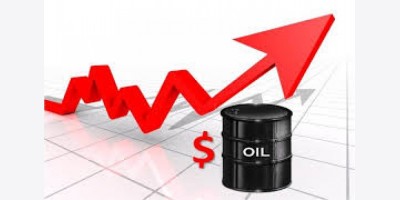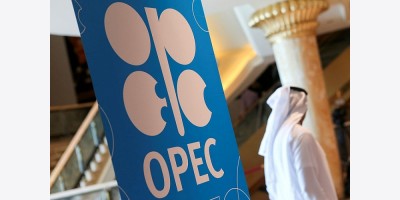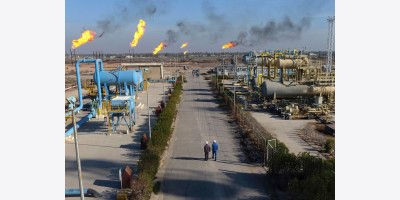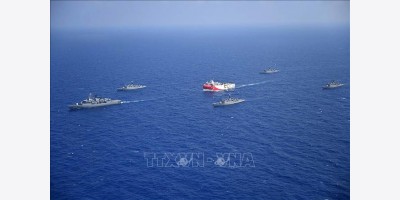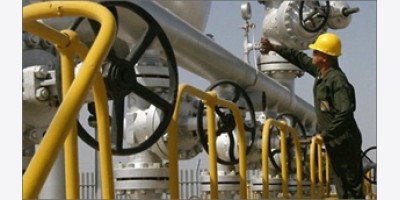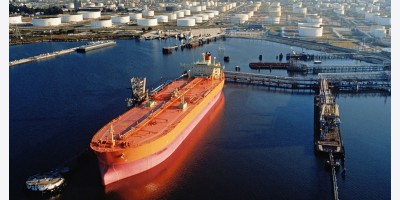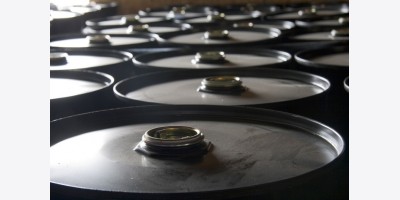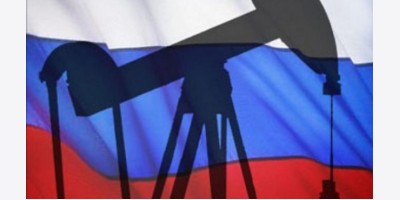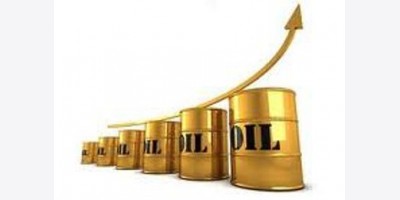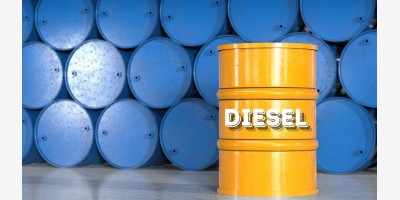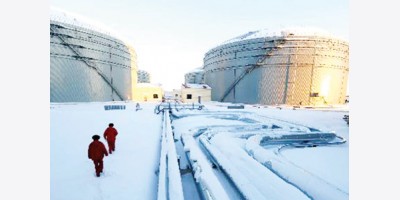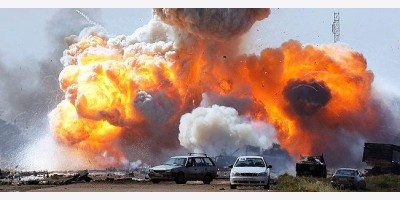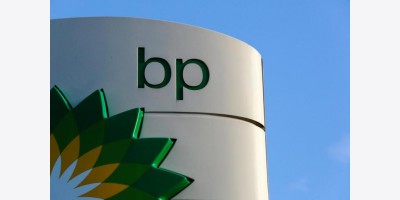Opec: bunker costs have broadly followed the 60% fall in crude oil prices since mid-2014.

Opec: bunker costs have broadly followed the 60% fall in crude oil prices since mid-2014.
Tanker owners might suffer a double hit from Middle East oil producers cutting back oil exports to prop up prices against a background of falling global demand growth
THE slide in crude oil prices to the lowest levels since early 2009 is truly alarming for all oil producers but a boost for major consumers, including the world’s shipowners. However, if turmoil in financial markets leads to a global economic slowdown then lower prices will be a mixed blessing.
The surplus of oil supply over demand — averaging nearly 2m barrels per day in 2015 and expected to still be 1m bpd in the first half of 2016 — is clearly the main factor behind lower prices but it now seems that oil is caught up in the wider collapse in commodities and equities markets fuelled by China’s stock market woes.
For oil producers Brent crude oil valued at $43 a barrel is a crisis, even for Saudi Arabia, the world’s largest oil exporter. Saudi Arabia decided last year to fight to preserve its market share, ushering in a period of lower oil prices to force cutbacks in short term investment in high cost producing areas — the US being the clear target. Although US crude oil production peaked at 9.6m bpd in June it has not collapsed as forecast by some analysts. This is due to three factors:
1. Process improvements leading to greater well productivity
2. Refinancing by some shale investors
3. Hedging of as much as 65% of shale output
Oil demand growth strong in 2015 but at risk
Even though oil demand growth in 2015 is likely to average 1.6m bpd, according to the International Energy Agency, this global number is heavily dependent on the US (+0.9 million bpd), China (+0.3 million bpd) and the Middle East oil producers themselves.
However, there must be a limit to the ability of US drivers to push more miles; the slowdown in China’s economic growth threatens further erosion in the rate of growth of oil demand even with lower prices; and the Middle East countries will surely see lower demand growth as the effects of lower crude prices work through into the wider economy.
More economic woe caused by global market turmoil might rein in oil demand growth further as consumers lose confidence.
Saudi Arabia’s economy under stress
Whatever Saudi Arabia’s oil minister was thinking in November 2014 when the market share policy was made explicit, his strategy has not played out as expected and the Saudis are in danger of seeing the price move completely out of control and only one way.
Their economy is becoming stressed with data from the International Monetary Fund suggesting that the budget deficit is heading fast towards 20% of gross domestic product, or nearly $150bn. It is politically impossible for the Saudi government to cut subsidies that, for example, set gasoline prices at only 16 cents per litre, so some other action action is needed.
Opec/Non-Opec co-ordination cannot work
Unfortunately there cannot be a co-ordinated Opec/non-Opec supply cut as we saw in previous decades because in 2015 two of the biggest non-Opec growth areas, Canada and the US, do not have anyone to call i.e. there is no all-powerful oil minister.
The Saudi oil minister can do as he pleases but the US and Canadian ministers cannot order producers to cut back.
In any event, are lower crude prices a problem for the US when you consider that it produces 9.5m barrels per day of crude and uses 20m bpd of products? It is fairly obvious that the country’s net interest is in lower prices. So why would the US cut production voluntarily, even it were possible?
Russia, the world’s biggest oil producer, has budget problems of its own exacerbated by economic sanctions and is in no position to help. No other non-Opec oil producers are worth considering.
Opec-wide production cut looks almost impossible
Even if Saudi Arabia, UAE, Kuwait and Qatar agree to act in a formal way by cutting production, Iraq would play the post-2003 guilt card and claim a free pass for higher production and Iran is gearing up for a market return and can also legitimately claim a free pass due to sanctions.
We cannot totally ignore the possibility of Libya returning to the market if there was a peace deal between the two rival governments; and the Libyans would claim, with some justice, that exceptional circumstances should allow an exemption from a production ceiling.
Elsewhere, Algeria, Nigeria and Venezuela have such terrible problems in their oil industries that production cuts are hardly relevant.
How the Saudis could stabilise markets and save face — perhaps at the expense of Naimi
Maybe the only realistic option is for the Saudis to publish this statement:
“Saudi Arabia always listens to the needs of its customers and is ready to supply as much oil as they require. It is becoming clear that some of our customers wish to reduce their purchases for the time being due to the very large level of crude oil stocks in all the main centres plus the expected very extensive level of refinery maintenance due to commence next month that will understandably reduce the demand for crude oil. In addition to this, the Kingdom increased production in the summer months to provide more oil for power generation to meet the exceptional demands of air conditioning. Now this need is easing.
"The combination of lower demand from our customers, both external and internal, means that the Kingdom will reduce its production of crude oil until our customers once again require an increase in supplies.”
Such a statement would allow the Saudis to signal that the market is oversupplied and they are acting to bring stability to oil prices by cutting supply. They will expect fellow Gulf producers (Kuwait, Qatar and the United Arab Emirates) to take similar steps.
Clearly this would not cause a price spike but the psychological value of such a policy statement would be considerable. Also, such a form of words would allow the Saudis to save face by using their time-honoured “needs of its customers” mantra. Interestingly, the abandonment, to a large extent, of the market state policy could mean the demise of Saudi Arabia’s oil minister, Ali al-Naimi, just as the collapse of the so-called netback policy in 1986 led to the dismissal of his most famous predecessor Sheikh Yamani.
If crude oil prices stabilised as a result of this action that would stave off collapse, for now at least. But the oil market would by no means be out of its crisis with the ongoing surplus of supply over demand remaining high. But let’s not forget consumers!
Lower prices are good for shipping costs but crude demand might fall
For consumers lower oil prices are good. For shipping in particular, bunker costs have broadly followed the 60% fall in crude oil prices since mid-2014 and for tanker owners the surge in crude oil and petroleum products shipments from Saudi Arabia, Iraq and other Middle Eastern producers has been very welcome.
However, if the current turmoil in equities markets and in other sectors does spill over into the real economy and leads to a global slowdown then clearly there will be implications for global trade. For tanker owners in particular, there might be a double hit from Middle East oil producers cutting back oil exports to prop up prices against a background of falling demand growth globally.
Neil Atkinson is head of analysis at Lloyd's List Intelligence. Watch his latest oil prices interview with CNBC here
Article from Lloyd's List
http://www.lloydslist.com/ll/sector/tankers/article467098.ece
Published: Tuesday 25 August 2015
© 2015 Informa plc. All rights Reserved. Lloyd's is the registered trademark of the Society incorporated by the Lloyd's Act 1871 by the name of Lloyd's




